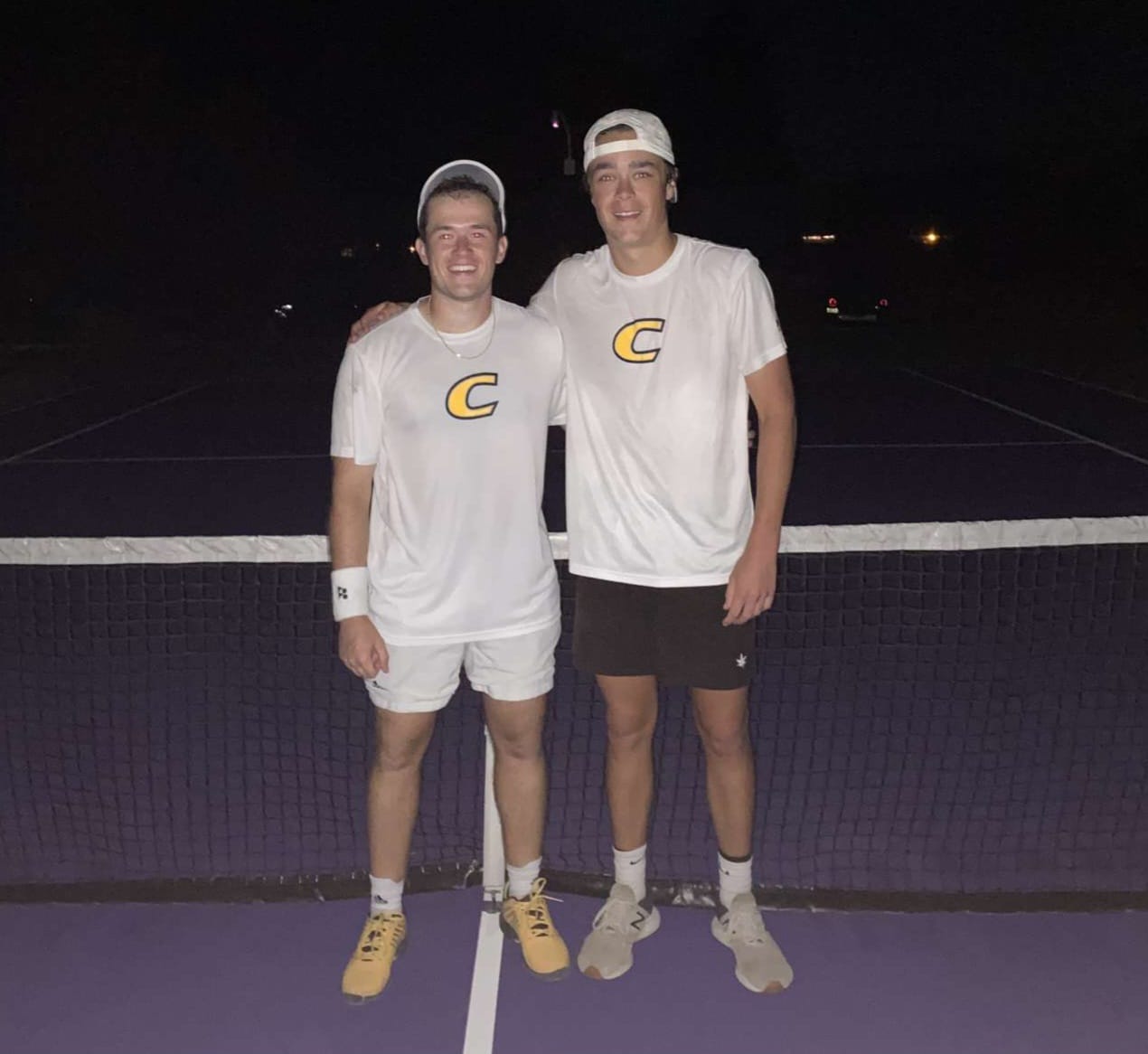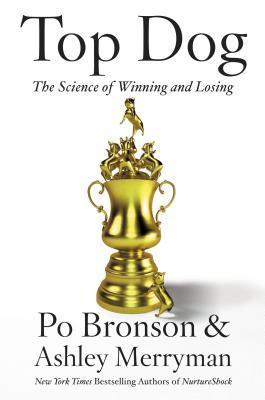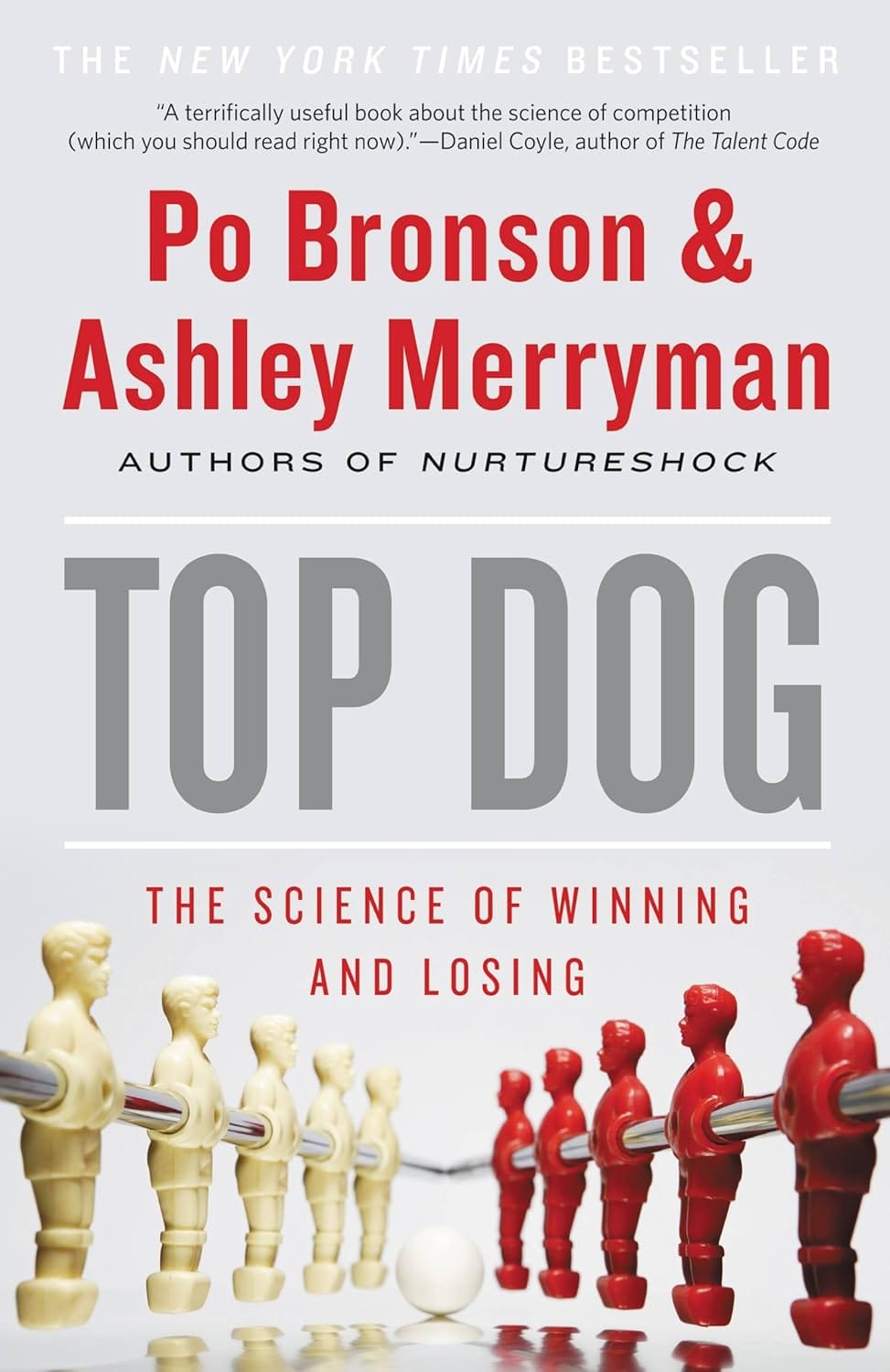Top Dog: The Science of Winning and Losing

The conclusion of my college ITA tournament career came after the loss to my teammate and good friend, Bo Bush. Bo and I had played countless times throughout junior tournaments since both of us grew up in Kentucky. Our first meeting was in the boys 12-and-under, if I recall correctly.
Throughout our four years as college teammates, this would be the first and last time we would play each other outside of practice in nearly five years. Despite this meeting taking place in the ITA tournament, there wasn't much on the line. We both lost in the first round of the main draw and won a couple of matches in the consolation. The outcome of our match wasn't for 5th, 6th, or even 7th place in the tournament - it was just the last round of the consolation being played for the weekend.
So why - even with a late night, four-hour van ride ahead of us and our teammates wanting to leave - did I want to win? Why did both of us put everything we had left into a match that didn't count for anything? Po Bronson and Ashley Merryman's Top Dog: The Science of Winning and Losing answered these questions for me years after the fact. At the time, I thought my competitive response was merely my desire to play one more match, to beat my good friend. I now know there were other factors at play I wasn't aware of consciously.
What Top Dog Offers
Top Dog's 12 chapters have some bit of advice for nearly all walks of life. Unless you are someone who does not care about performing well - not just in sports but in everyday life - this book has something for you. I would recommend Top Dog to every athlete, parent, instructor, psychologist, business professional, politician, etc. I wasn't kidding when I said it takes a certain type of person to have nothing to gain from reading this book. Between discussing the importance of parental roughhousing with children to the physiological effect of neurological transmitters and hormones, there is never a dull passage.
I'll be discussing my biggest takeaways from the book and how they've impacted, and currently impact, my life. I don't want to delve into the lessons I took from the book. I don't want to spoil anything or give any preconceptions to first-time readers.
The Spectator Difference
I can still remember the dread I would feel playing tennis with my dad watching. Specifically, I remember the dread, embarrassment, and shame when I was playing badly. I never knew exactly why I felt that way. I knew that my playing had made him disappointed, but I couldn't yet distinguish between the disappointment of wanting someone you care about to succeed and seeing them fail from the disappointment of being let down by a poor performance - by me. I'll classify these as outcome-related disappointment for the former and person-related disappointment for the latter. Years later, and with the advantage of hindsight, I now realize that most of the disappointment I saw on his face was due to outcome-related disappointment. He cared for me so much and wanted the best for me; it was tough for him to see me fail.
I can't remember when I stopped feeling this way. What changed to make me not afraid of having my dad - my parents, family, even friends - watch me compete? My dad didn't stop caring about my tennis, and he would still look disappointed on the sidelines regularly enough. Had I grown accustomed to his looks, or maybe I stopped caring how he felt? Bronson and Merryman report that something entirely different had occurred.
I had "mastered" tennis. I don't mean that I had improved to the point where I couldn't get better - far from it - I mean that I was no longer learning the game. I wasn't a novice. This is the first major takeaway I gained from Top Dog. Studies show that having an audience stresses a beginner and makes it harder for them to perform, but it does the opposite for an expert. And I had fallen into this pattern. During my college career, I loved having an audience. I knew that I performed better when people were watching me.
The match I mentioned earlier - when I lost to Bo - had this situation present. None of our other teammates were playing, we were the last match of the entire evening, so everyone was forced to watch our court. I didn't know then, but I am positive I played harder because of all the watching eyes.
Playing to Win
The phrase "playing not to lose" should be familiar to most athletes, if not most people. Characterized by conservative play and tentative actions, I wish that I was a stranger to the phenomenon - that I didn't know the feeling all too well. Unfortunately, my tennis game lent itself to this strategy too easily at times. Just like in most sports, this isn't the best course of action in tennis. Bronson and Merryman's first case study on the "paradox of playing not to lose" centers around tennis. This wasn't the first time I'd been introduced to this idea, but they do a fantastic job at breaking down how the psychology affects the physiology
By playing not to lose, we place more pressure on ourselves to avoid mistakes, in turn leading to increased errors. In tennis, this is a vicious cycle. Once you stop hitting the ball, it's nearly impossible to start again, and your opponent will be ready to pounce on the weakness. I like to remind myself of the proverb, "Fortune favors the bold," when thinking about playing to win. In tennis, you might hit more winners and feel less stress about making errors.
Once again, I see this situation in my match against Bo. There was truly nothing on the line, no glory, ranking, team seeding. Bragging rights would be the most you could argue, but bragging rights amongst friends and teammates only last so long. Both of us were able to play to win. Bo's game is well-suited for this, an all-court player looking to get to the net as soon as possible doesn't need to be thinking about what happens if he misses a volley. And for myself, it let me hit my groundstrokes a bit harder than I normally would while grinding away on the baseline.
Is Tennis a Team Sport?
This is a tough question to answer. If you have college or professional aspirations, junior tennis is about recognition and standing above your peers. Thus, junior tennis is mostly individual competitions. The money for pro players is once again individual; the Olympics and Davis Cup/Billie Jean King Cup payouts are fractions of the money earned by solo competitors at other top tennis tournaments. Doubles tennis does exist and is like having a team, but for the last several decades, it has taken a backseat to the glory of singles play. Even high school tennis in the U.S. isn't entirely team-based. Some states even opt to have their state tournament conducted with individual players representing their schools.
College tennis isn't free from the individual mindset, either. The fall season is generally individual play and tournaments, while team matches occur in the spring. It's here, in the few spring months before classes let out and tournament play resumes, that tennis becomes closest to a team sport. Since each win counts only for a single point - 4 of 7 points needed to win - no one player can decide the outcome of a college match. No star three-point shooter to save the day, no "Hail Mary" throw from the quarterback, and no walk-off home run to steal the game. You are relying on every single person to give their all in the pursuit of four separate wins.
Top Dog discusses U.S. Olympic swimming results to show that performance levels increase in team environments. People are shown to push past their normal limits when their team is depending on them. I've witnessed the same in college tennis.
When a tennis match is down to the last court, all the pressure comes down to one person. I've seen the greatest celebrations and felt the worst heartbreaks in these moments. In our first year at Centre College, Bo was playing to clinch a conference win for us - one that would likely secure a regular season championship. In scorching heat, cramping, and dealing with food poisoning, he fought long after anyone expected possible. With his third set lead dwindling, and several visits to the back fence losing his breakfast, he finally lost the grueling three-hour battle. My own loss in the conference tournament finals ended that same team's season. And while no single player can be fully responsible for the team's loss, it stings much worse when you're the player that decides the outcome.
Three years and many matches later, the two of us were playing each other in the last match of the weekend. No championships were on the line this time, but we had something else at stake. We could have gone out there and given a poor performance, wrapped the whole thing up in about half an hour. But what type of message would this have sent to our underclassmen? How could we, as seniors and leaders of the team, show them it's okay not to give your best in a match? We couldn't. We had to go out there and show them that every match matters. You're playing for something bigger than yourself.
Wrap Up
These are only three of the numerous lessons I have applied from Top Dog. To keep things short and prevent me from reliving the glory days for too long, I encourage you to read Top Dog yourself. Read it as a way to not only gain retrospect on your past but also to gain guidance for your future.



